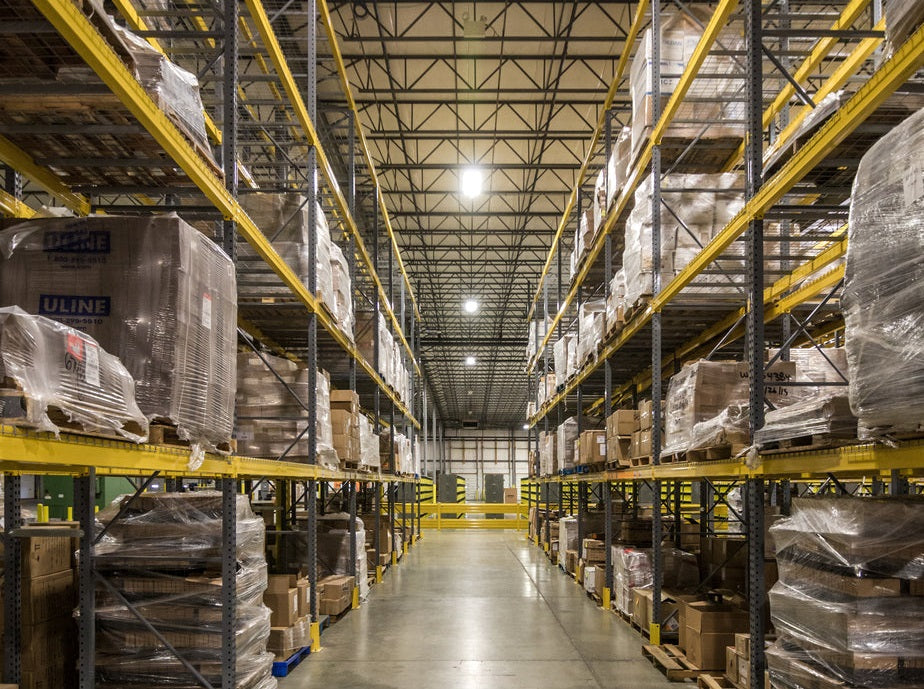
Understanding Virtual Warehouses: A Game-Changer for Modern Businesses
Share
In recent years, the way businesses operate has undergone significant transformation. With the rise of remote work, especially following the pandemic, companies have found innovative solutions to stay efficient and cost-effective. One such solution is the virtual warehouse—a concept that has grown in popularity as more businesses shift towards digital operations.
But what exactly is a virtual warehouse, and why should your business consider using one? In this article, we’ll explore the essentials of virtual warehouses, how they function, and the numerous advantages they offer.
What is a Virtual Warehouse?
A virtual warehouse is essentially a cloud-based solution that allows businesses to manage their inventory, order fulfillment, and logistics without the need for a physical warehouse. It connects businesses with third-party logistics providers, enabling them to store products in various locations while keeping operations centralized online. This system allows businesses to streamline their supply chain, reduce overhead costs, and improve flexibility.
With a virtual warehouse, businesses can access key functions typically associated with physical warehouses, such as inventory management, order processing, and shipment tracking—all digitally managed and updated in real time.
How Does a Virtual Warehouse Work?
By adopting a virtual warehouse model, businesses gain access to a suite of valuable features, such as:
- Inventory Management: Monitor stock levels and manage your inventory seamlessly from anywhere.
- Order Fulfillment: Automate the picking, packing, and shipping of products.
- Multiple Storage Locations: Leverage warehouses across various regions without maintaining physical facilities.
- Real-Time Updates: Stay informed with real-time updates on product availability, orders, and shipments.
- Cost Savings: Avoid the high costs associated with maintaining and staffing a physical warehouse.
These services allow businesses to operate at scale, without the burden of physical infrastructure costs. For instance, while traditional warehouse spaces can cost a small fortune, a virtual warehouse typically offers plans that start at a fraction of the price, providing flexibility and affordability.
Who Can Benefit from a Virtual Warehouse?
Virtual warehouses are perfect for a variety of business types, including:
- E-commerce businesses: Online stores looking to streamline logistics without needing physical space.
- Startups: Businesses looking to minimize initial costs while they grow.
- Freelancers and Consultants: Individuals who don’t need physical storage space but still want to offer products or services.
- Global Sellers: Businesses that need to store products in multiple regions without setting up new warehouses.
- Retailers: Companies that want to reduce the risk and cost of managing stock across multiple locations.
Why Should You Use a Virtual Warehouse?
There are several reasons why businesses are turning to virtual warehouses:
- Reduced Overheads: Save on rent, utilities, and staffing costs.
- Scalability: Easily scale your operations as demand grows without the hassle of moving to larger facilities.
- Geographical Flexibility: Store products closer to customers, speeding up delivery times.
- Easy Integration: Many virtual warehouses integrate seamlessly with existing business software, making it easy to manage your operations in one place.
- Increased Efficiency: With automated order fulfillment and real-time tracking, your business runs smoothly and efficiently.
The Key Advantages of Virtual Warehouses
- Cost Efficiency: Cut down on the significant costs of physical warehousing, freeing up capital for other business needs.
- Flexibility: Adjust your storage needs based on demand fluctuations without being tied down by long-term contracts.
- Time Savings: Automate many aspects of inventory and order management, allowing you to focus on growth and expansion.
- Wider Reach: Access global markets by storing products in multiple locations, reducing shipping costs and times.
- Quick Setup: Implementing a virtual warehouse is typically faster and less complicated than setting up a physical location.
Is a Virtual Warehouse Worth the Investment?
For businesses, particularly in the e-commerce space, a virtual warehouse can significantly improve operational efficiency, reduce costs, and streamline the entire supply chain. With the ability to manage logistics from anywhere, your business gains flexibility, scalability, and an edge in today’s competitive market.
Virtual warehouses are an essential tool for businesses looking to stay agile and cost-effective in a digital world. By tapping into their benefits, companies can focus on growing their brand while leaving logistics and inventory management in expert hands.
FAQ
What is a virtual warehouse?
A virtual warehouse is an online platform where businesses can manage their inventory and order fulfillment without needing a physical storage facility.
How does a virtual warehouse differ from a traditional warehouse?
A virtual warehouse operates in the cloud, eliminating the need for physical space while offering real-time management tools and logistics services.
Can I use a virtual warehouse for international shipping?
Yes, virtual warehouses often allow businesses to store products in multiple global locations, making international shipping faster and more cost-effective.
How do I get started with a virtual warehouse?
Starting with a virtual warehouse is simple—choose a provider that offers the services and locations you need. The setup process is usually quick, and you can start managing your inventory right away.
For businesses looking to optimize their operations and reduce costs, a virtual warehouse could be the solution you've been searching for. Sign up with Warehouse Address today.
